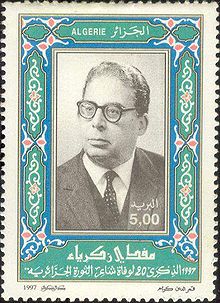The blog aggregates news about publications, activities, etc. related to Egyptian/Arabic scholarship in the field of Greco-Roman studies and thus seeks to challenge the Eurocentrism prevalent in the field. It aims also at directing the attention to relevant materials from modern nonacademic/public contexts; roughly from 1798-to the present. The news comes mainly from Egypt without excluding other Arabic countries.
CC License
Monday, April 29, 2019
COLONIALISM AND EUROPEAN ARCHAEOLOGY
Thursday, October 5, 2017
The Algerian Iliad by Cheikh Zakaria (1908-1977)
A first short version of this poem of only 610 verse lines was recited by Cheikh Zakaria himself in the inauguration of the sixth conference of the Islamic thought on July 24, 1972 in Club of Pines in Algeria where Houari Boumédiène (1932-1978), Chairman of the Revolutionary Council, was one of the participants. There is a recording on You Tube where one can listen to the very sensational recitation by the author himself. Here it is:
Saturday, August 13, 2016
Classics in Post-Colonial Worlds, by Lorna Hardwick and Carol Gillespie, 2007
ABSTRACT [ from Oxford Scholarship Online]
Classical material was traditionally used to express colonial authority, but it was also appropriated by imperial subjects to become first a means of challenging colonialism, and then a rich field for creating cultural identities which blend the old and the new. Nobel prize winners such as Derek Walcott and Seamus Heaney have rewritten classical material in their own cultural idioms, while public sculpture in southern Africa draws on Greek and Roman motifs in order to represent histories of African resistance and liberation. These developments are explored in this collection of essays by scholars who debate the relationship between the culture of Greece and Rome, and the changes that have followed the end of colonial empires.
http://www.oxfordscholarship.com/view/10.1093/acprof:oso/9780199296101.001.0001/acprof-9780199296101
Friday, December 19, 2014
Shaden M. Tageldin, Disarming Words Empire and the Seductions of Translation in Egypt, UCP 2011
Disarming Words
Empire and the Seductions of Translation in Egypt
Shaden M. Tageldin
Univesity of California Press 2011
Acknowledgments
Note on Translation and Transliteration
Overture | Cultural Imperialism Revisited: Translation, Seduction, Power
1. The Irresistible Lure of Recognition
2. The Dismantling I: Al-'Attar's Antihistory of the French in Egypt, 1798–1799
3. Suspect Kinships: Al-Tahtawi and the Theory of French-Arabic "Equivalence," 1827–1834
4. Surrogate Seed, World-Tree: Mubarak, al-Siba'i, and the Translations of "Islam" in British Egypt, 1882–1912
5. Order, Origin, and the Elusive Sovereign: Post-1919 Nation Formation and the Imperial Urge toward Translatability
6. English Lessons: The Illicit Copulations of Egypt at Empire's End
Coda | History, Affect, and the Problem of the Universal
Notes
Index




